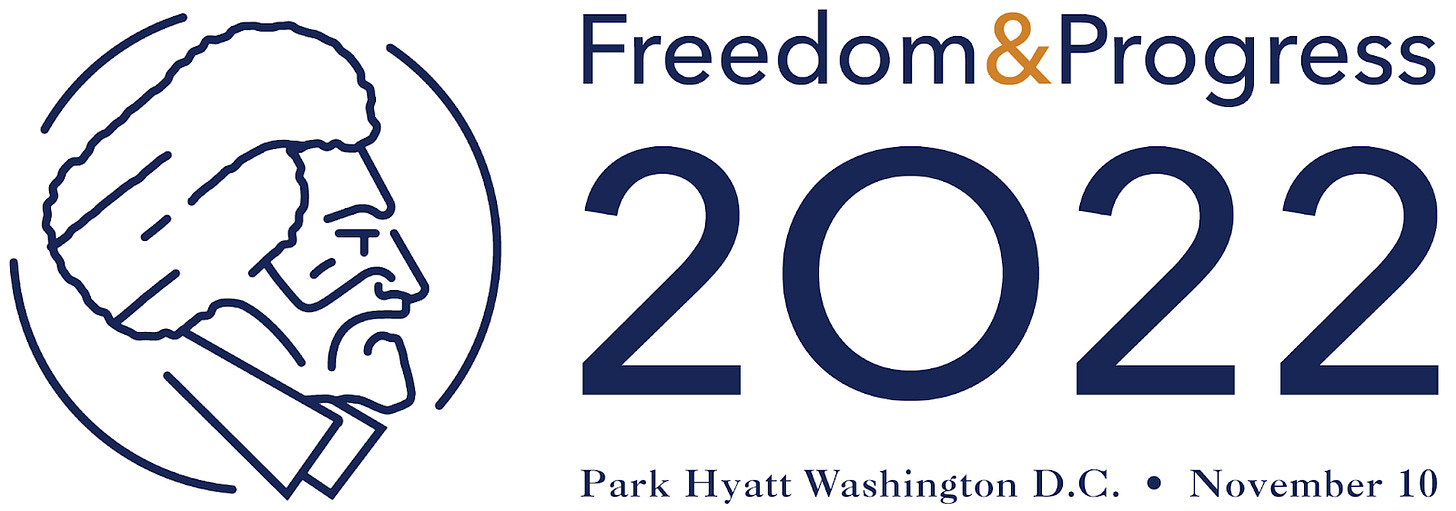Biden’s “gainful employment” rule needs fixing
Plus: Digital asset advocates learn to operate in Washington; California just can’t let go of housing regulations; and FREOPP convenes in D.C. in November
Evaluating the Biden Administration’s proposed Gainful Employment framework: With student loan forgiveness projected to drive the U.S. deficit to a whopping $1.4 trillion for 2022, moves to tie federal higher education funding to accountability and outcomes are welcome. It is too bad, then, that the Biden Administration’s proposed Gainful Employment rule (GE) misses the mark. As currently designed, GE would eliminate federal aid funding for postsecondary certificate programs and for-profit colleges if their students have a high debt-to-earnings ratio or fail to realize earnings above the median high school level. In a new paper assessing the GE framework, FREOPP Senior Fellow Preston Cooper finds that it sweeps up trade school programs that provide a positive return on investment for students, while failing to consider degree programs at public and private nonprofit colleges at all—a significant oversight since more than three-quarters of college students graduate from those programs. What’s more, as Preston writes in RealClearPolicy, even if GE were extended to all schools, it would be far too lenient towards low-value master’s degree programs that leave students drowning in debt. His recommendations for a better framework include changing several GE tests and thresholds, replacing its termination enforcement mechanism with a system of graduated financial penalties, and ending federal loans for graduate school.
Crypto goes to Washington: Earlier this month, Time profiled our friends at the Digital Chamber of Commerce and described how regulators in D.C. and members of the cryptocurrency industry are grappling with the political and legal landscape around digital asset businesses. As FREOPP President Avik Roy and others explain in the article, a clear and consistent regulatory structure is essential for businesses to be sure they are operating lawfully, but agencies like the Securities and Exchange Commission have taken an “enforcement first” approach that provides little guidance and risks driving most innovation and economic opportunity overseas. Fortunately, policymakers in both parties are taking notice and have introduced multiple pieces of legislation designed to bring much-needed clarity.
Want more of Avik’s thoughts on crypto? Check out his take on one of the most sweeping piece of legislation in play, the bipartisan bill introduced by Senators Cynthia Lummis (R., Wyo.) and Kirsten Gillibrand (D., N.Y.). Avik also discusses how fiat currency drives the wealth divide on the influential podcast What Bitcoin Did.
California misses the target on commercial property: This fall, the California legislature introduced two laws aimed at making it easier to build houses on empty commercial lots. With housing demand meeting a limited supply and driving prices ever higher, making it possible for developers to turn vacant commercial properties into housing through a fast-tracked process makes a lot of sense. But, as FREOPP Resident Fellow Roger Valdez observes in Forbes, the legislature couldn’t resist imposing costs—such as prevailing wage and training requirements—with one hand that likely offset the benefits—such as not requiring re-zoning for residential use—it granted with the other. California is far from the only place that cannot let go of its desire to manage and meddle in property development. Advocates of increased housing supply need to continue to build the public support that empowers politicians to simply get out of the way and letting housing happen.
Join FREOPP scholars and friends in D.C. Freedom & Progress 2022 is approaching and rooms at the Park Hyatt in Washington, D.C., are filling up! But it isn’t too late to register for the conference and join us on Thursday, November 10, to discuss our best ideas for deploying liberty to help everyone move ahead. Confirmed participants represent a diversity of perspectives on policy particulars and include Peter Goettler, David Frum, Kori Schake, Ian Rowe, John Yoo, Eli Lehrer, Scott Winship, Sam Hammond, Aparna Mathur, Rafael Mangual, Jason DeLisle, Lindsey Burke, Lee Drutman, Robert Rector, Henry Olsen, Judge Glock, Ryan Streeter, Devon Westhill, Ben Domenech, and all your favorite FREOPP scholars.
For more information and to register for the conference, visit freedomandprogress.rsvpify.com. And as a subscriber to our Substack, you can use the code “FRIENDS2022” for a 50 percent discount on your registration fee.
Thanks for keeping up with FREOPP, and have a great weekend!
FREOPP’s work is made possible by people like you, who share our belief that equal opportunity is central to the American Dream. Please join them by making a donation today.



